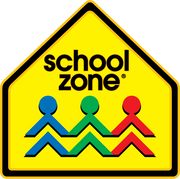Social studies is a key part of early education, helping young children understand the world around them. For kindergarteners, it's about feeling connected to their community (and developing the communication skills needed to participate in it. According to UNICEF, “In the first few years of life, more than one million neural connections are formed each second – a pace never repeated again.” Laying a foundation in the early years for all subjects, including social studies, is vital for a child's successful, well-rounded development.
Understanding the kindergarten social studies curriculum
Kindergarten social studies introduces kids to their community, family, and the world. It covers:
- Roles in the community, like teachers, doctors, and firefighters
- Family structures and cultural diversity
- Basic geography, including maps and globes
- History, as related to notable figures, events, and national holidays
- Citizenship, including values like kindness, fairness, respect, and responsibility
The goal is to help kids understand their place in the world and the importance of community and cooperation. Family Education offers a good overview of social studies for this age group, noting that “In the earliest years of school, the social studies curriculum is oriented toward the family and the neighborhood, social relationships, and what might be called civic responsibilities.”
The IXL Learning website “offers dozens of kindergarten social studies skills to explore and learn!” They fall within categories that include “American symbols and landmarks,” “Read along about famous people,” and “Read along about holidays.”
Early social studies lessons build social, communication, and thinking skills, preparing kids for school and community life.
Benefits of interactive learning in social studies
Interactive learning makes social studies engaging for kindergarteners, helping them explore ideas and their community in a fun way.
- Engagement: Interactive tools capture kids' interest.
- Hands-On Experience: Role-playing and games let kids experience historical events or societal roles firsthand.
- Digital Learning Apps: Apps offer quizzes and animated stories for dynamic learning through play.
- Enhanced Retention: Active participation helps kids remember what they learn.
School Zone aims to make learning fun and effective. With resources like the Anywhere Teacher app for ages 2-8, children enjoy interactive games and activities that bring social studies to life. It includes options such as President Flash Cards, The United States of America Flash Cards, State the Facts, and USA Wiz Quiz that develop knowledge of our nation, as well as those like I Can Help Others, Introducing Basic Emotions, Describing My Emotions, and Emotions Flash Cards that sharpen social-emotional skills.
Cooperative teaching and learning in kindergarten
Cooperative learning is crucial in kindergarten social studies. It involves kids working together, fostering social and academic growth. Here’s why it matters:
- Teamwork Skills: Kids learn teamwork, communication, and problem-solving.
- Social Development: Group work helps kids understand others.
- Enhanced Learning: Collaborative activities encourage children to share ideas and learn from one another.
According to Wondertree, cooperative learning enhances cognitive and social skills, making it a valuable teaching strategy. They also cite research showing that “It can lead to deeper learning, improve self-esteem, and build an understanding of others’ diverse perspectives.”
Examples of cooperative activities include:
- Group Projects: Creating a map of their community together.
- Role-Playing: Acting out historical events or community roles.
- Story Sharing: Sharing family or community traditions to foster cultural understanding.
By incorporating these methods, educators create a supportive learning environment that emphasizes our interconnectedness and prepares children for future success.
Engaged parents and educators help create engaged students
Parents and teachers play a vital role in making social studies meaningful. Here are some tips:
- Incorporate Social Studies into Daily Activities: Use everyday moments like grocery trips to discuss community roles.
- Family-Oriented Activities: Plan activities like making a family tree or a vacation map to reinforce concepts.
- Use School Zone Resources: In addition to Anywhere Teacher for interactive learning experiences at home or on the go, use workbooks like Kindergarten Scholar that include illustrations of sights and scenes kids will see in their community.
- Encourage Questions and Discussions: Foster curiosity by encouraging kids to ask questions about different places, cultures, and histories.
By engaging in your child's social studies education, you help them build a strong foundation in understanding the world. It may be fun to brush up on your own understanding of historic figures and events! Interactive social studies lessons stimulate curiosity and engage young learners; this allows them to explore the world in a playful way, and helps them understand their community and history, as well as their place in both.
School Zone has long been committed to making learning fun and effective. With resources like the Anywhere Teacher subscription, parents and educators have access to interactive tools that align with educational goals, supporting the full curriculum, including social studies, and helping children grasp complex concepts through play.
Working together and using a variety of interactive tools and methods, we can help kids develop critical thinking and social skills that will serve them throughout their academic journey and beyond.











